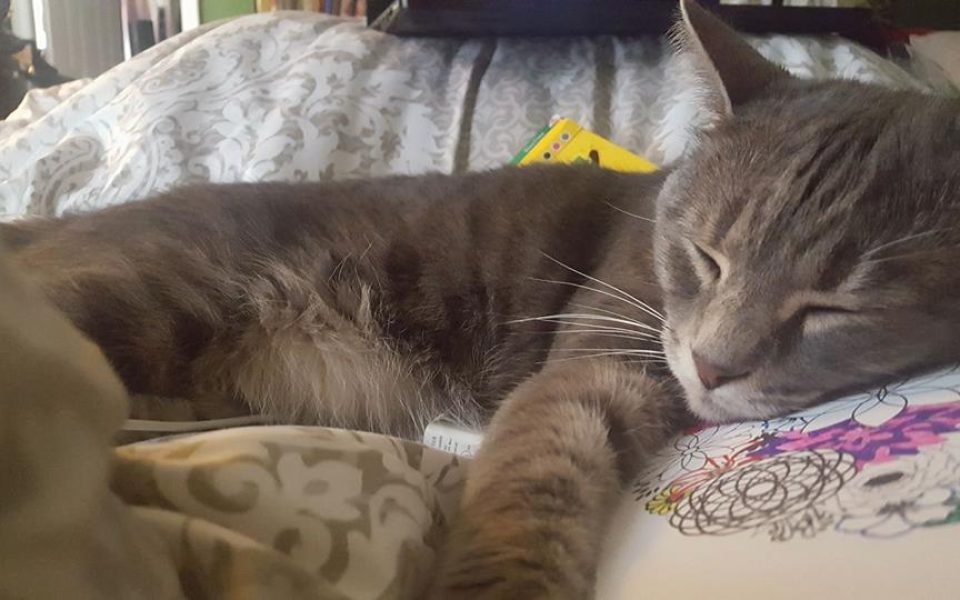Trevor is not allowed into the house. George is not allowed out of it. And neither is happy with the arrangement.
George is our house cat — as opposed to our three other cats, who have been granted privilege to leave the house whenever they can convince someone to open the door. But not George.
The reasons for his imprisonment are vague, dictated somewhat arbitrarily by my wife and, to a lesser degree, our youngest: He’s too sweet, too trusting to survive out there. His toe beans are too soft, his grey pelt too fluffy to camouflage him from the dive-bombing birds in the backyard, his penchant for snuggling not likely to help him out there in the wild.
Still, he’s always lobbying for his release, always lurking near a door about to be opened, always issuing plaintive cries when the other cats are granted their leave, always showing us how fast he is, how sharp he keeps his claws.
Trevor is a different story. For one, his name isn’t Trevor, and for another he’s not even our cat.
Our… abundance… of felines sometimes attracts other cats, quite often strays. The first Trevor was like that: a wild-eyed ginger tabby with something to the shape of his head that made us think he might be related to some of our cats, fathered by a feral neighborhood tom.
This Trevor wears the same color scheme as his predecessor — dirty orange, like the basketballs at a public park — and is similarly unsterilized, the evidence of which he seems to enjoy displaying, almost tauntingly.
And this Trevor wants in the house, bad enough to deny his independent nature and distrust of humans. Not at first. At first he would scram as soon as we got within 10 feet of him. Then we’d find him lounging on or beneath our cars when we came outside. Now he runs to us as we approach the front door, writhing against our ankles and rubbing his face on the concrete footpath, trying to squeeze past us to the inside, where no doubt he will begin spraying in every corner and then dare us to kick him out.
George and Trevor know each other only through the glass of the back-patio screen door, where sometimes they hiss at each other and sometimes try to touch noses and sometimes just regard each other dreamily. Each wants what the other has so badly, it’s tempting to just swap them out one night and show them how miserable they’d be.
Join the First Amendment Society, a membership that goes directly to funding TCB‘s newsroom.
We believe that reporting can save the world.
The TCB First Amendment Society recognizes the vital role of a free, unfettered press with a bundling of local experiences designed to build community, and unique engagements with our newsroom that will help you understand, and shape, local journalism’s critical role in uplifting the people in our cities.
All revenue goes directly into the newsroom as reporters’ salaries and freelance commissions.


Leave a Reply